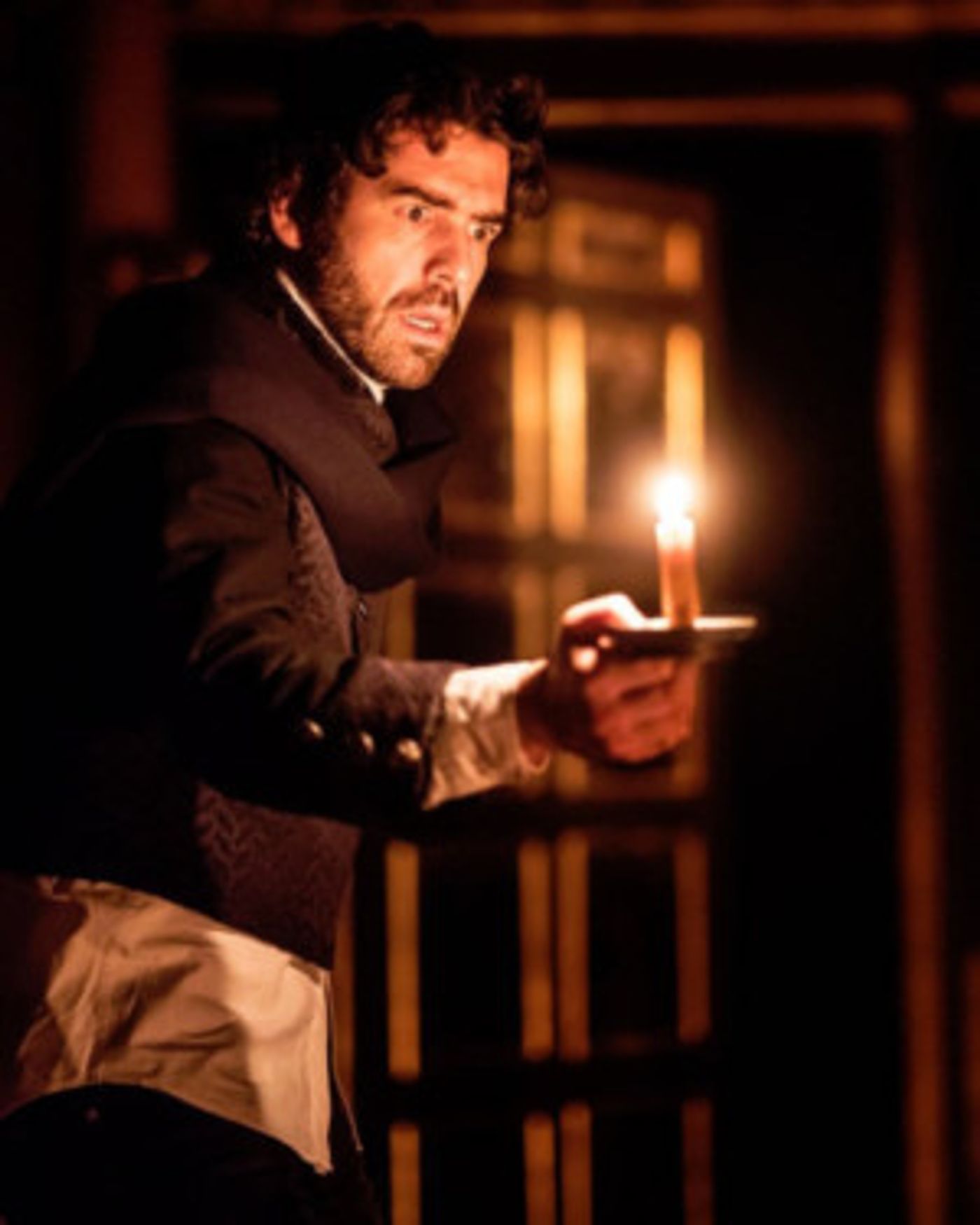Review: MACBETH, Shakespeare's Globe

![]() You wait so long for a Macbeth then, like buses, four major productions come along at once. The Barbican is staging the Royal Shakespeare Company's offering, while the roundly panned National Theatre's effort is out on tour and the National Youth Theatre's version is playing in the West End.
You wait so long for a Macbeth then, like buses, four major productions come along at once. The Barbican is staging the Royal Shakespeare Company's offering, while the roundly panned National Theatre's effort is out on tour and the National Youth Theatre's version is playing in the West End.
Now there's this Macbeth, the first outing of the debut winter season of Michelle Terry's tenure as artistic director at Shakespeare's Globe, where Robert Hastie's gimmick-free direction, quite rightly, highlights Shakespeare's rich, resonant text and the atmospheric environs of the candlelit Sam Wanamaker Theatre.
There is plenty going on. For instance, the lighting peculiarities of theatre become an interesting theatrical device in and of itself, with many scenes performed with each actor holding their own candle, and in some instances in complete darkness.
And in the very effective representation of the witches who are not actually seen, but very definitely heard in giggles, whispers and thumping on the wooden back walls of the theatre in a simulation of a haunted house. All of which is greatly amplified by composer Laura Moody's trio chanting in Enochian - the language that Elizabethan magus and philosopher John Dee ascribed to angels.
Paul Ready in the title role is a particularly naïve Macbeth whose performance feels somewhat hesitant in the beginning scenes, as if he hasn't quite inhabited the complexity of the character into his body.
Perhaps this is an expression of the character's uncertainty of not knowing whether he actually wants the throne or is supposed to want the throne per the prophecy of the witches and the conviction of his wife, because Ready's performance gets into its stride after Duncan's murder.
Terry herself (Ready's real life wife) plays Lady Macbeth, and while her portrayal is more surefooted from the start, one wonders if she has been miscast. Her brisk, housewifely portrayal, perfect for her speech about dashing out babies' brains, doesn't really convey the sense of her as a master manipulator who uses the nuance of her feminine wiles to chivvy along her husband. Even so, the strength of connection between Terry and Ready lends their fictional marriage believability.
The rest of the strong cast reflects the Globe's dedication to 50:50 gender and colour-blind casting, most noticeably with Anna-Maria Nabirye's emotionally resonant Macduff and the obviously seasoned Joseph Marcell, familiar to many as the butler in The Fresh Prince of Bel Air, who initially plays Duncan and later, after his murder, portrays the porter with exactly the right shade of drunken buffoonery.
Macbeth is, no doubt, a play about vaulting ambition, guilt and murder. It's also overwhelmingly a play about fear and the different forms it takes - anxiety, paranoia, dread, terror, panic - and what it can make people do. It's a word that's mentioned no less than 48 times in the play.
Macbeth is afraid of his own deeds - "I'm afraid to think what I've done". Lady Macbeth fears Macbeth is not man enough to do the deed and fears being caught. In the end, it's this fear that leads her to take her own life when she wakes from her somnambulism. Malcolm and Donalbain fear being killed after their father Duncan. It's a tale of ghosts and a haunting which is fearful in itself.
Fear of the supernatural pervades the play, reflecting the era in which it was written and, more than likely, King James I's obsession with the occult. In the intimate, candlelit gloom of the Sam Wanamaker Theatre, modelled on Blackfriars Theatre where the play is likely to have had some of its first public performances, the motif of literal and metaphorical darkness inherent in the play comes into its eerie and claustrophobic own.
While Hastie's version doesn't offer any new leaps of insight into the psychological underpinnings of the nature of fear that drive the action, it's a solid and riveting production that goes a long way to allaying any fears the audience might have that this much-performed and well-known play will be another botched job for 2018.
Macbeth at Shakespeare's Globe until 2 February
Photo Credit: Johan Persson
Reader Reviews
Videos

